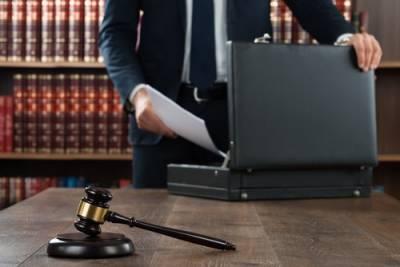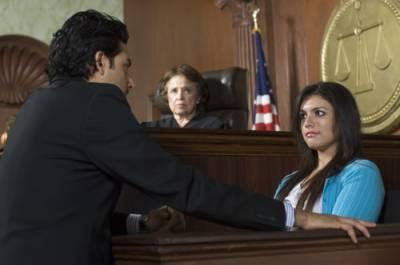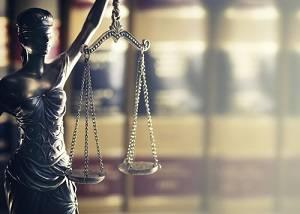
Recent Blog Posts
What Are My Rights if My Doctor Failed to Diagnose My Cancer?
 One of the most devastating diagnoses someone can ever receive is a cancer diagnosis. However, once a person has been diagnosed with cancer, they can begin treatment. The sooner a patient learns his or her diagnosis, the sooner they can begin exploring their options, speaking with medical experts, and starting down the road to recovery. When cancer is not caught quickly, there is typically a greater chance of the cancer spreading throughout the body. In many cases, an early cancer diagnosis and swift treatment regimen can save someone’s life. However, when a doctor fails to diagnosis cancer or misdiagnoses it as something else, the patient may experience unnecessary pain and suffering and worsened health. The diagnostic mistake may even cost the patient his or her life.
One of the most devastating diagnoses someone can ever receive is a cancer diagnosis. However, once a person has been diagnosed with cancer, they can begin treatment. The sooner a patient learns his or her diagnosis, the sooner they can begin exploring their options, speaking with medical experts, and starting down the road to recovery. When cancer is not caught quickly, there is typically a greater chance of the cancer spreading throughout the body. In many cases, an early cancer diagnosis and swift treatment regimen can save someone’s life. However, when a doctor fails to diagnosis cancer or misdiagnoses it as something else, the patient may experience unnecessary pain and suffering and worsened health. The diagnostic mistake may even cost the patient his or her life.
Diagnostic Mistakes Involving Cancer
Are Non-Workers Entitled to Compensation for Injuries Sustained at a Construction Site?
 When we think about construction site injuries, we typically think about injured construction workers. When a construction worker is harmed as an employee on a construction site, he or she is typically entitled to compensation for medical bills and lost wages though workers’ compensation. You may wonder, however, what happens when a non-worker is injured at a construction site. For example, what happens if you are walking near a construction site and are injured by falling building debris? In a situation like this, you may be able to recover compensation via a personal injury claim.
When we think about construction site injuries, we typically think about injured construction workers. When a construction worker is harmed as an employee on a construction site, he or she is typically entitled to compensation for medical bills and lost wages though workers’ compensation. You may wonder, however, what happens when a non-worker is injured at a construction site. For example, what happens if you are walking near a construction site and are injured by falling building debris? In a situation like this, you may be able to recover compensation via a personal injury claim.
Non-Employee Construction Site Injuries
Construction sites are filled with dangers. Partially-constructed buildings, suspended beams, hazardous materials, other dangers can lead to severe injuries and deaths. Construction companies and contractors are expected to follow strict safety regulations to protect the wellbeing of workers as well as non-workers. However, construction site accidents still can and do occur. A construction accident can lead to traumatic brain injuries, broken bones, internal organ damage, amputation injuries, and much more.
How Can a Personal Injury Lawyer Help Me During My Case?
 A personal injury claim is a legal action that allows someone who was injured by another party’s negligence or wrongdoing to seek compensation for damages. Injury claims are often used to pursue damages after a car accident but they may also follow slip and fall accidents, injuries caused by defective products, and other types of injury-causing incidents. An experienced personal injury lawyer is a valuable asset when bringing a personal injury claim.
A personal injury claim is a legal action that allows someone who was injured by another party’s negligence or wrongdoing to seek compensation for damages. Injury claims are often used to pursue damages after a car accident but they may also follow slip and fall accidents, injuries caused by defective products, and other types of injury-causing incidents. An experienced personal injury lawyer is a valuable asset when bringing a personal injury claim.
Demonstrating the Elements Needed to Prove Your Entitlement to Damages
To receive financial compensation for damages after an injury, you must establish four main points. First, the defendant, meaning the party against whom you are brining a claim, owed you a duty of care. This may the duty of a driver to drive a reasonable speed, the duty of a company to design a safe consumer product, the duty of a property owner to maintain a safe premises, or another type of duty. Next, you will need to show that the defendant failed to uphold this duty of care. Proving fault for an injury is often the most pivotal part of winning an injury claim. You will also need to show that the defendant’s breach of duty caused your injuries. Finally, you must demonstrate that you sustained damages as a result of your injuries. Damages are losses you suffered because of your injury such as medical expenses, lost wages, and property damage. Your attorney can help you demonstrate each of these elements. Your attorney may consult with medical experts, accident reconstructionists, or other professionals, gather evidence such as surveillance camera footage, review police reports, and find other sources of evidence to prove the required elements.
Common Causes of Truck Accidents in Illinois
 Semi-trucks and other large trucks carry everything from building supplies to groceries across the country. It is safe to say that our modern way of life would be nearly impossible without the services that trucking companies and truck drivers provide. However, large trucks can also cause horrific traffic accidents. If you or a loved one were involved in a truck accident, you may be able to recover financial compensation for damages through a personal injury claim. However, before you can successfully recover compensation, you and your attorney will need to identify the cause of the accident and determine who is liable for your damages.
Semi-trucks and other large trucks carry everything from building supplies to groceries across the country. It is safe to say that our modern way of life would be nearly impossible without the services that trucking companies and truck drivers provide. However, large trucks can also cause horrific traffic accidents. If you or a loved one were involved in a truck accident, you may be able to recover financial compensation for damages through a personal injury claim. However, before you can successfully recover compensation, you and your attorney will need to identify the cause of the accident and determine who is liable for your damages.
Loose, Shifting, or Fallen Truck Cargo
Rigorous safety policies regulate the way that truck cargo must be loaded and secured. Truck cargo that is inside of a trailer must be loaded in such a way that the weight is evenly distributed. The cargo must be properly secured so that it does not move around the trailer during transit. When cargo is not loaded and secured correctly, it can cause the truck to become off balanced and even tip over. Cargo that is improperly loaded on a flatbed truck may fall out of the truck and onto the road. Other vehicles may collide with the fallen cargo or generate another accident trying to avoid a collision.
How Are Witnesses Used in a Personal Injury Claim?
 Personal injury claims are used to pursue compensation for injuries caused by another party’s wrongful, reckless, or negligent actions. There are four main components to a successful personal injury claim. You and your attorney will need to show that you were owed a duty of care by the defendant, the defendant breached the duty, your injuries were caused by the defendant’s breach of duty, and you sustained damages. To prove each of these elements, you and your attorney may use a variety of techniques and resources. One of these resources is testimony from witnesses. Read on to learn about the different types of witnesses that may be involved in your personal injury claim and how they may help you demonstrate the elements needed to win your case.
Personal injury claims are used to pursue compensation for injuries caused by another party’s wrongful, reckless, or negligent actions. There are four main components to a successful personal injury claim. You and your attorney will need to show that you were owed a duty of care by the defendant, the defendant breached the duty, your injuries were caused by the defendant’s breach of duty, and you sustained damages. To prove each of these elements, you and your attorney may use a variety of techniques and resources. One of these resources is testimony from witnesses. Read on to learn about the different types of witnesses that may be involved in your personal injury claim and how they may help you demonstrate the elements needed to win your case.
Eyewitnesses to the Accident
Incident witnesses or lay witnesses are people who witness your accident happen. They may be used to confirm the series of events that took place and explain what happened from their perspective. Whether your injuries were caused in a car accident, slip and fall accident, dog attack, or another type of accident, eyewitness statements may be used to corroborate your testimony. Your lawyer can help you locate and obtain testimony from eyewitnesses.
Liability for Injuries Caused by Snow and Ice in Illinois
 Intense winter weather is just around the corner in Illinois and that means that the potential for snow and ice-related injuries will be increasing significantly. If you or a loved one are injured in a slip and fall accident caused by snow or ice, you may wonder what the laws are regarding liability for snow and ice injuries. Are property owners legally required to remove snow and ice from their walkways and parking lots? Can residential property owners be held liable for failure to remove snow and ice? Understanding Illinois laws regarding liability for snow and ice injuries is key to knowing your rights after an injury caused by ice or snow.
Intense winter weather is just around the corner in Illinois and that means that the potential for snow and ice-related injuries will be increasing significantly. If you or a loved one are injured in a slip and fall accident caused by snow or ice, you may wonder what the laws are regarding liability for snow and ice injuries. Are property owners legally required to remove snow and ice from their walkways and parking lots? Can residential property owners be held liable for failure to remove snow and ice? Understanding Illinois laws regarding liability for snow and ice injuries is key to knowing your rights after an injury caused by ice or snow.
Unnatural Accumulation of Snow and Ice
Illinois property owners cannot be expected to keep their properties completely free of snow and ice. It is simply impossible to keep up with harsh Illinois winters in this way. However, property owners are responsible for preventing avoidable injuries caused by “unnatural accumulation” of snow or ice. Put another way, property owners are not automatically liable for every injury caused by the accumulation of snow or ice. If a person’s injury is caused by snow or ice that naturally accumulated in an area because of the weather, the property may avoid liability. However, if the snow or ice accumulates unnaturally, the property owner may be liable for injuries caused by the unnatural accumulation. For example, a property owner may be liable for injuries caused by:
4 Common Forms of Elder Abuse in Nursing Homes
 Nursing homes should be places of refuge for elderly and disabled individuals. Residents deserve to receive appropriate medical care and be treated with respect and dignity. Sadly, many nursing home residents are victims of abuse and neglect. The abuse may come from staff, visitors to the facility, or even other residents. If you have a loved one in a nursing home or assisted care facility, it is important to learn about the signs of nursing home abuse.
Nursing homes should be places of refuge for elderly and disabled individuals. Residents deserve to receive appropriate medical care and be treated with respect and dignity. Sadly, many nursing home residents are victims of abuse and neglect. The abuse may come from staff, visitors to the facility, or even other residents. If you have a loved one in a nursing home or assisted care facility, it is important to learn about the signs of nursing home abuse.
Psychological Abuse
Some studies consider psychological abuse or emotional abuse to be the most common form of elder abuse in nursing homes. In one sad example, a 91-year-old Chicago nursing home resident was teased and taunted by staff. The staff filmed a video of themselves bullying the vulnerable woman and uploaded it to a social media app. Psychological abuse may take the form of threats, intimidation, bullying, or humiliation.
What Types of Compensation Are Available in a Personal Injury Claim Involving Catastrophic Injuries?
 When a person is injured because of the reckless, negligent, or malicious actions of another party, the injured person has a right to bring a legal action against the at-fault party. Through a personal injury claim, the injured person may be awarded financial compensation or “damages” for their losses. Catastrophic injuries are injuries that dramatically impact a person’s life or result in permanent disability. Cases involving catastrophic injuries often result in much higher settlements and awards than cases involving injuries that are less severe.
When a person is injured because of the reckless, negligent, or malicious actions of another party, the injured person has a right to bring a legal action against the at-fault party. Through a personal injury claim, the injured person may be awarded financial compensation or “damages” for their losses. Catastrophic injuries are injuries that dramatically impact a person’s life or result in permanent disability. Cases involving catastrophic injuries often result in much higher settlements and awards than cases involving injuries that are less severe.
Catastrophic Injuries Significantly Affect a Victim’s Life
Traumatic brain injuries, spine injuries, severe burns, vital organ injuries, amputation injuries, and other catastrophic injuries have a profound impact on the victim’s life. If you or a loved one suffered a life-changing injury in a car accident, slip and fall accident, work accident, or other incident, you may be curious about your legal options. The injuries may have created an overwhelming financial burden on you and your family. Fortunately, you may be entitled to compensation for the damages sustained in the accident.
When is a Dog Owner Liable for Injuries Caused in a Dog Attack?
 It is important to remember that dogs, while lovable and cute, are animals that may be capable of attacking someone. Dog bites can cause severe injuries that leave lasting physical and mental scars. These injuries can also incur considerable expenses. If you or a loved one were the victim of a dog attack, you may have questions about your legal options. You may wonder if the dog’s owner is responsible for your medical bills, lost income, or other costs caused by the attack.
It is important to remember that dogs, while lovable and cute, are animals that may be capable of attacking someone. Dog bites can cause severe injuries that leave lasting physical and mental scars. These injuries can also incur considerable expenses. If you or a loved one were the victim of a dog attack, you may have questions about your legal options. You may wonder if the dog’s owner is responsible for your medical bills, lost income, or other costs caused by the attack.
Illinois Law Regarding Dog Bite Injuries
Some states follow a “one free bite” rule in dog attack cases. This means that an owner can avoid liability for injuries caused by his or her dog if he or she did not know that the dog was capable of biting someone. Once the dog has bitten someone, however, the owner may be held legally responsible if the dog bites again. Illinois is a “strict liability” state with regard to dog attacks which means that the “one free bite” rule does not apply. An Illinois owner is responsible for injuries caused in a dog attack when:
What Is the Burden of Proof in an Illinois Personal Injury Case?
 The average Illinois resident has little to no experience with the Illinois legal system. When most people sustain a serious personal injury or lose a loved one in a wrongful death accident, they may be unsure of what the civil claims process even entails. If you are interested in bringing a civil claim for damages in Illinois, it is a good idea to educate yourself about legal procedures and rules that will likely be involved in your case. One issue that many people misunderstand when it comes to civil matters such as personal injury claims is the “burden of proof.”
The average Illinois resident has little to no experience with the Illinois legal system. When most people sustain a serious personal injury or lose a loved one in a wrongful death accident, they may be unsure of what the civil claims process even entails. If you are interested in bringing a civil claim for damages in Illinois, it is a good idea to educate yourself about legal procedures and rules that will likely be involved in your case. One issue that many people misunderstand when it comes to civil matters such as personal injury claims is the “burden of proof.”
Establishing the Defendant’s Negligence
A personal injury claim or wrongful death claim is a legal action in which a plaintiff seeks “damages” or financial compensation for the losses caused by the injury or death. The plaintiff’s losses may have been caused by the defendant’s intentional or malicious actions or the case may be founded upon the concept of negligence. To prove that a defendant was negligent, the following main points must be proven:
 Free Camp Lejeune Case Review
Free Camp Lejeune Case Review






